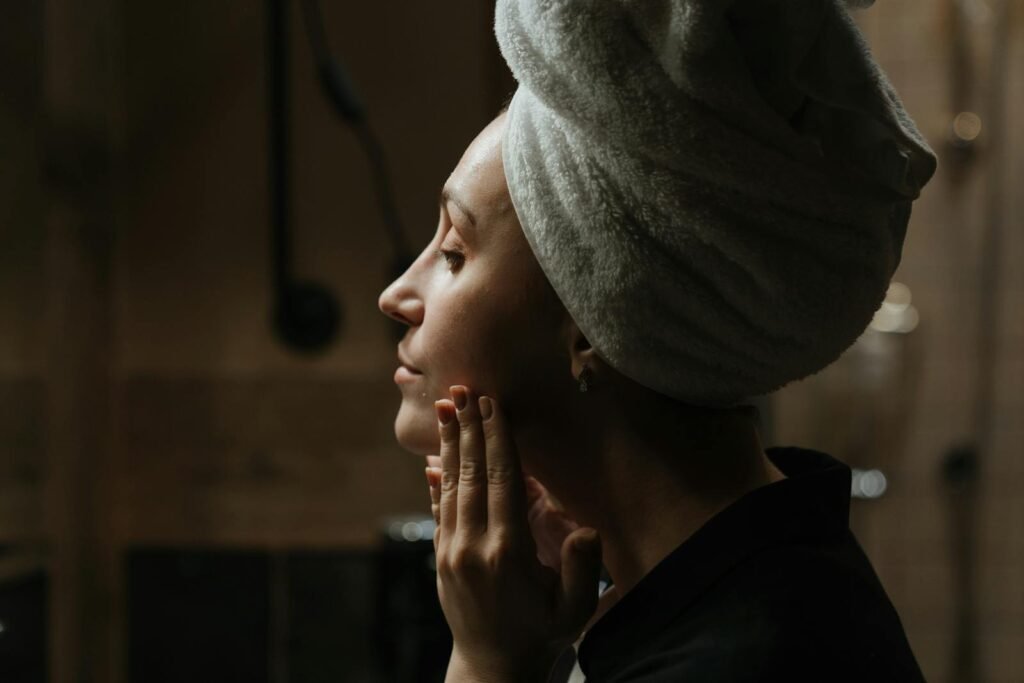Understanding Your Skin Type and Needs

Your skin is one of the most dynamic organs of your body. It reflects your overall health and well-being and is often a window into your self-care habits. Understanding your skin type and its unique needs is essential for maintaining a healthy, glowing complexion. In this comprehensive guide, we’ll dive into the science behind your skin, discuss how to identify your skin type and provide actionable tips to care for it effectively.
Why Understanding Your Skin Type Matters
Not all skin is created equal. Using products or treatments not suited to your skin type can lead to adverse effects such as breakouts, dryness, or irritation. By tailoring your skincare routine to your specific skin type, you can:
- Improve skin health
- Reduce the risk of irritation or damage
- Maximize the effectiveness of skincare products
- Achieve a radiant, glowing complexion
The Basics of Skin Science
Your skin has three main layers:
- Epidermis: The outermost layer that provides a barrier against environmental damage.
- Dermis: The middle layer, rich in collagen and elastin, gives skin structure and elasticity.
- Hypodermis: The deepest layer, consisting of fat and connective tissue.
Each layer plays a role in maintaining your skin’s overall health. Factors such as hydration, sebum production, and cell turnover vary from person to person, influencing your skin type.
Identifying Your Skin Type
The Five Main Skin Types
- Normal Skin
- Balanced oil production and hydration.
- Minimal blemishes, even tone, and a smooth texture.
- Oily Skin
- Excess sebum production.
- Enlarged pores, shiny appearance, and a tendency to develop acne.
- Dry Skin
- Low sebum production, leads to a lack of moisture.
- Flaky, tight, or rough texture.
- Combination Skin
- Oily in the T-zone (forehead, nose, chin) and dry or normal elsewhere.
- Requires a tailored approach to address varying needs.
- Sensitive Skin
- Prone to redness, irritation, and reactions to certain products.
- Often feels itchy or inflamed.
How to Determine Your Skin Type
The Bare-Face Test
- Wash your face with a gentle cleanser and pat dry.
- Avoid applying any skincare products.
- Wait for an hour and observe your skin:
- Normal: Balanced with no noticeable dryness or oiliness.
- Oily: Visible shine, especially in the T-zone.
- Dry: Feels tight or flaky.
- Combination: Oily T-zone but normal or dry cheeks.
- Sensitive: Redness or discomfort.
The Blotting Paper Test
- Press blotting paper on different areas of your face.
- Hold it to the light to see the oil level:
- Little to no oil: Dry skin.
- Moderate oil: Normal skin.
- Excess oil across most areas: Oily skin.
- Oil only on the T-zone: Combination skin.
Addressing Your Skin’s Needs

Normal Skin
- Tips:
- Maintain hydration with lightweight moisturizers.
- Use a broad-spectrum sunscreen daily.
- Incorporate antioxidants like vitamin C for a healthy glow.
- Key Ingredients: Hyaluronic acid, niacinamide, and peptides.
Oily Skin
- Tips:
- Use oil-free, non-comedogenic products.
- Exfoliate regularly to prevent clogged pores.
- Consider mattifying primers to control shine.
- Key Ingredients: Salicylic acid, tea tree oil, and clay.
Dry Skin
- Tips:
- Focus on deep hydration with rich moisturizers.
- Avoid hot showers that can strip natural oils.
- Use gentle cleansers to prevent further dryness.
- Key Ingredients: Ceramides, shea butter, and glycerin.
Combination Skin
- Tips:
- Treat the T-zone with oil-control products.
- Hydrate dry areas with soothing creams.
- Use multi-masking to target specific areas.
- Key Ingredients: Aloe vera, niacinamide, and hyaluronic acid.
Sensitive Skin
- Tips:
- Patch-test new products before full application.
- Opt for fragrance-free, hypoallergenic products.
- Soothe irritation with calming agents like chamomile.
- Key Ingredients: Oat extract, centella asiatica, and allantoin.
The Role of Lifestyle in Skin Health

Your skin’s condition is influenced by more than just skincare products. Lifestyle factors such as diet, stress, and sleep can significantly impact your complexion.
Tips for a Skin-Healthy Lifestyle
- Hydration: Drink at least 8 glasses of water daily to keep your skin plump and hydrated.
- Balanced Diet: Include foods rich in omega-3s, vitamins, and antioxidants to nourish your skin from within.
- Sleep: Aim for 7-9 hours of quality sleep to support skin repair and regeneration.
- Stress Management: Practice mindfulness, yoga, or meditation to reduce stress-induced breakouts.
Common Myths About Skin Types
Myth 1: Oily Skin Doesn’t Need Moisturizer
Fact: Oily skin still requires hydration to maintain balance and prevent overproduction of sebum.
Myth 2: Sensitive Skin is the Same as Allergic Skin
Fact: Sensitivity refers to heightened reactivity, while allergies are immune responses to specific substances.
Myth 3: You Can Permanently Change Your Skin Type
Fact: While you can manage symptoms, your skin type is largely determined by genetics.
Statistics on Skincare and Skin Health
- According to a 2022 study, 75% of women feel overwhelmed by the number of skincare products available.
- 63% of people misidentify their skin type, leading to ineffective routines.
- The global skincare market is expected to reach $189 billion by 2025, highlighting the growing interest in skin health.
Conclusion: Glow From Within

Understanding your skin type is the first step toward crafting a personalized skincare routine that truly works. By using the right products, maintaining a skin-friendly lifestyle, and staying informed about your skin’s unique needs, you can unlock the secret to a radiant glow.
Takeaway: Your skin is as unique as you are. Listen to it, nurture it, and watch it thrive!
By following these tips and embracing your skin’s individuality, you can achieve healthy, glowing skin that reflects your inner beauty. For more insights into skincare and beauty, stay tuned to our blog and let your journey to radiant skin begin today!




